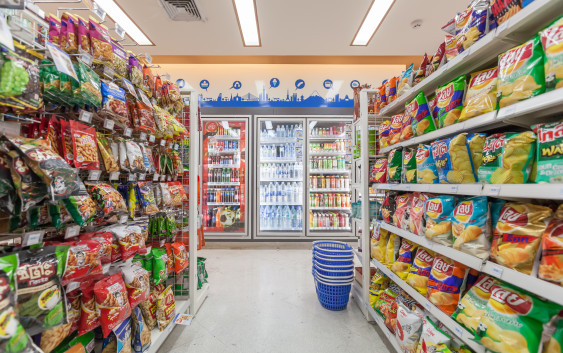The Japan Times – January 20, 2016 – Japanese authorities will help convenience store operators and other retailers tap into overseas markets under a newly agreed Pacific free trade pact, participants of a government-business council meeting said Monday.
The Trans-Pacific Partnership accord will deregulate rules in the convenience store business in some TPP countries, including Malaysia and Vietnam, allowing Japanese firms to open more such stores and invest in local retailers, they said.
The industry ministry held the meeting Monday with convenience store operators and the Japan External Trade Organization to discuss ways to help major Japanese retailers tap into overseas markets.
Trade minister Motoo Hayashi, top executives of four big Japanese convenience store operators, Hiroyuki Ishige, JETRO chairman, and other officials gathered at the first such meeting after the agreement last October.
“I would like to ask (everyone here) to compile concrete measures by March,” Hayashi said at the meeting, which was partially open to the media.
Seven-Eleven Japan Co. President Ryuichi Isaka, Lawson Inc. President Genichi Tamatsuka, FamilyMart Co. President Isamu Nakayama and Ministop Co. President Naoyuki Miyashita attended the meeting as the four companies are aggressively expanding operations abroad.
JETRO hopes to offer its know-how in conducting test-sales of Japanese food and other products abroad, a ministry official said at a briefing after the meeting.
The ministry is seeking to facilitate sales of products of small Japanese firms in particular through sales networks overseas established by the four companies.
In some Asian countries like Vietnam, “there is a good chance that Japanese valued-added products can sell well to their expanding upper middle class,” Lawson’s Tamatsuka told reporters after the meeting.
Japan, Vietnam, Malaysia, the United States, New Zealand and seven other counties agreed to create a free trade zone in the Pacific Rim region that will cover 40 percent of the global economy. The countries will remove or lower tariffs and introduce unified international trade and investment rules under the accord.
The 12 nations are arranging to hold a signing ceremony to finalize the text of the deal in New Zealand on Feb. 4, sources said earlier this month.
The agreement will enter into force when at least six countries, accounting for 85 percent of the combined gross domestic product of the 12 signatories, ratify the treaty.

